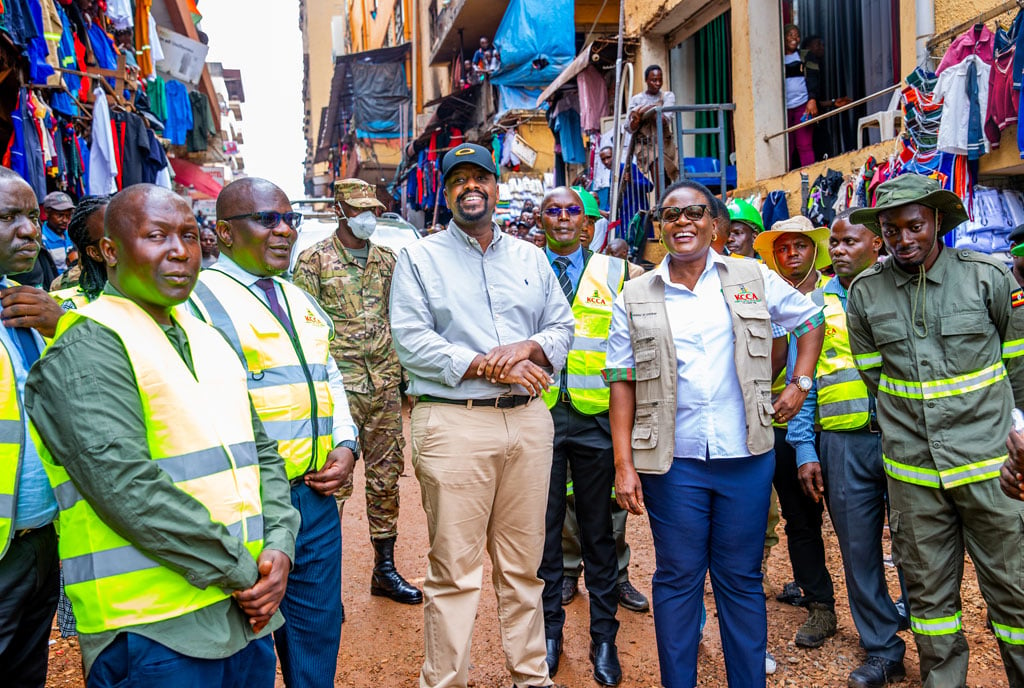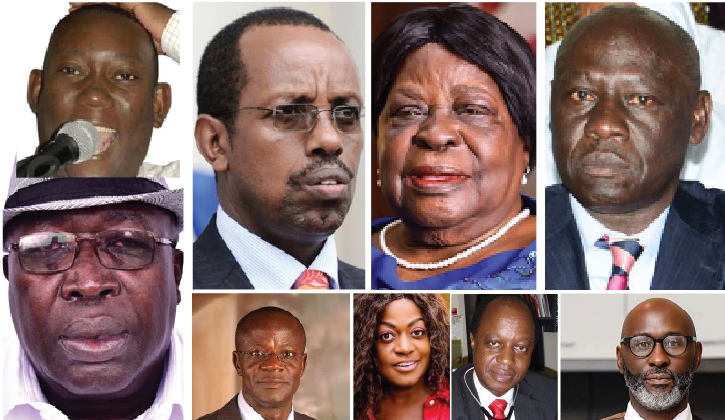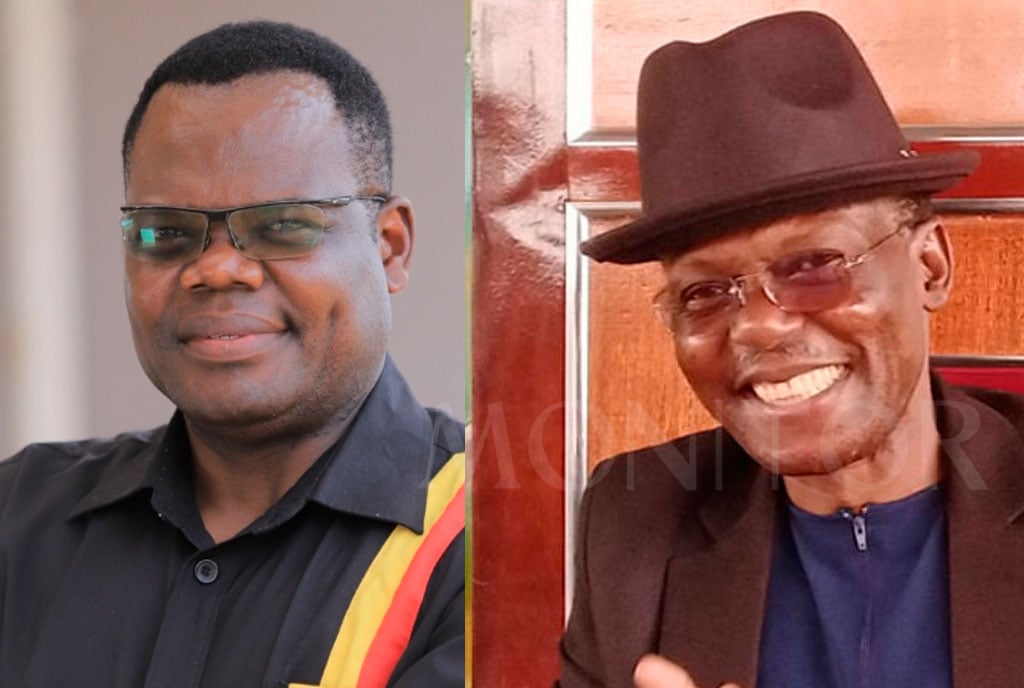Prime
The year we called 2023

Gen Muhoozi (C) and KCCA boss Kisaka (R) inspect Kampala potholes in 2023. PHOTO/FILE
What you need to know:
- Even with today’s social media platforms that have rearranged society, the dominant topics are essentially ‘Agaafa’ State House.
The society is seated in a theatre auditorium, watching the government perform a play and from time to time commenting on the acting, costumes, and from time to time expressing its disapproval of the dialogue and action.
In other words, Uganda is still a government-facing society, looking to the government for direction and intervention.
In the early 1960s, there was a newspaper titled Agaafa Mengo (roughly translated as the news and matters from, and pertaining to, Mengo, seat of the Buganda government), reflecting the same passive relationship with and looking to authority that we see today.
Digital communities
Even with today’s social media platforms such as Twitter, WhatsApp and Facebook that have rearranged global society into clusters of digital communities, the dominant topics are essentially Agaafa State House or Agaafa Gavumenti.
Government inaction, scandals, incompetence, wastefulness, and insensitivity are the main subject of discussion in Ugandan social media circles.
The passivity was also seen in the continued expectation of donations and aid from abroad.
Two weeks ago, the Chinese government donated 70 vehicles to assist Uganda’s preparations to host the Non-Aligned Movement and the G77 summits in Kampala.
No searching questions are asked about how a country whose GDP has been growing continually since 1986 and is reportedly closing in on a middle-income status, should still be so dependent on aid in the most basic things like cars.
Wrangles tore apart the society. First, it was the long-standing Opposition party, the Forum for Democratic Change (FDC), which had a very public and ugly split into two factions and the political experience of its senior leaders was unable to be brought to bear and diffuse the tensions before they became irreparable.
The other, equally bitter split took place at the Uganda Muslim Supreme Council headquarters at Old Kampala. Islam comes across as more austere and detached from worldly wealth and prestige than mainstream Christianity.
Subjects of the religion dress traditionally on feast days, and so it puzzled many onlookers that senior leaders at Old Kampala should sell off Muslim property and land out of greed for money.
By year’s end, inaction within the government and the effects of holding too much power had resulted in a Cabinet that does little unless directed by President Museveni.
He, in turn, was now reduced to running the country with the help of family members, as Cabinet ministers in charge of these matters are sidelined. (So much for the “fishermen Cabinet.”)
Thus, Museveni’s son, Gen Muhoozi Kainerugaba, was assigned to supervise the army’s repair of Kampala’s badly deteriorated roads, while his son-in-law Odrek Rwabwogo was sent to Washington to urge the United States to reconsider its expulsion of Uganda from the Agoa bilateral tariff-free arrangement.
The First Family itself was not free of the tensions besetting the FDC and the Uganda Muslim Supreme Council.
Turning to other matters, one year ago I stated in a review of 2022 that the most consequential news of the year could well be the report by the Ministry of Health that about a third or more than 14 million Ugandans are currently suffering from various degrees and types of mental illness.
If accurate, this alarming statistic explains much that went on in society in both 2022 and 2023 – the erratic driving, the mob justice, the family land wrangles, and the abnormal greed for money and wealth.
The underlying mental health issues were only compounded by the extremely stressful conditions under which most Ugandans live.
One of the causes of all this is the lack of accurate analysis across the country. There is very little expert reporting of any kind to guide local businesses and foreign investors.
Everything is either a cheery celebration of a new factory 0r hotel, or grumbling directed at the government.
If, for example, one wanted to build a hotel and was trying to decide whether to locate it in Gulu or Mbarara, there is no way of accurately comparing the two towns’ economic strength.
There are no industry reports and analysis such as we see in Europe and North America to provide guidance and business intelligence.
The annual budget estimates published every June are concerned with government expenditure and the economy’s performance over the previous 12 months.
It gives an overall national picture, but what the business sector needs is detailed sector-by-sector data independent of the government’s data.
Source of information
What, for instance, was the most popular song in Uganda in 2023 and how can we accurately determine that?
There is no source of information on music sales or digital online streams.
Which was the best-selling smartphone brand in Mbale in 2021 or the most popular yoghurt flavour in Masaka in 2023? No information.
If one wanted to find the best wedding or events photographer in Tororo or Kabale, once again there would be no definitive information on this.
One would simply have to go by word-of-mouth referrals.
Businesses, therefore, are forced to work by instinct, estimation, and vague perception.
They stock their shops and hope for the best and as is increasingly clear from the gloomy mood in the business community, trading conditions and profit are getting harder by the year.
This kind of business measurement and analytical industry data can be compiled by the private sector, without everything being expected of the government.
President Museveni, whose strength in the early years after 1986 was his ability to hold the country together, still has that symbolic status, but the day-to-day details are clearly starting to overwhelm him.
It is coming to two years since the death of the governor of Bank of Uganda, Tumusiime-Mutebile, and Museveni is nowhere near finding a replacement for him.
This, then, is the year we had called 2023.
It was of a society that is weak at its core lacking in imagination and initiative and in its weakness looks to the government, which government is often clueless and just as weak about running a country in today’s sophisticated technological era.
The people who know what to do, that is, the Western and Asian countries, are hesitant to speak out lest they are accused of neo-colonial meddling in Uganda’s internal affairs.





